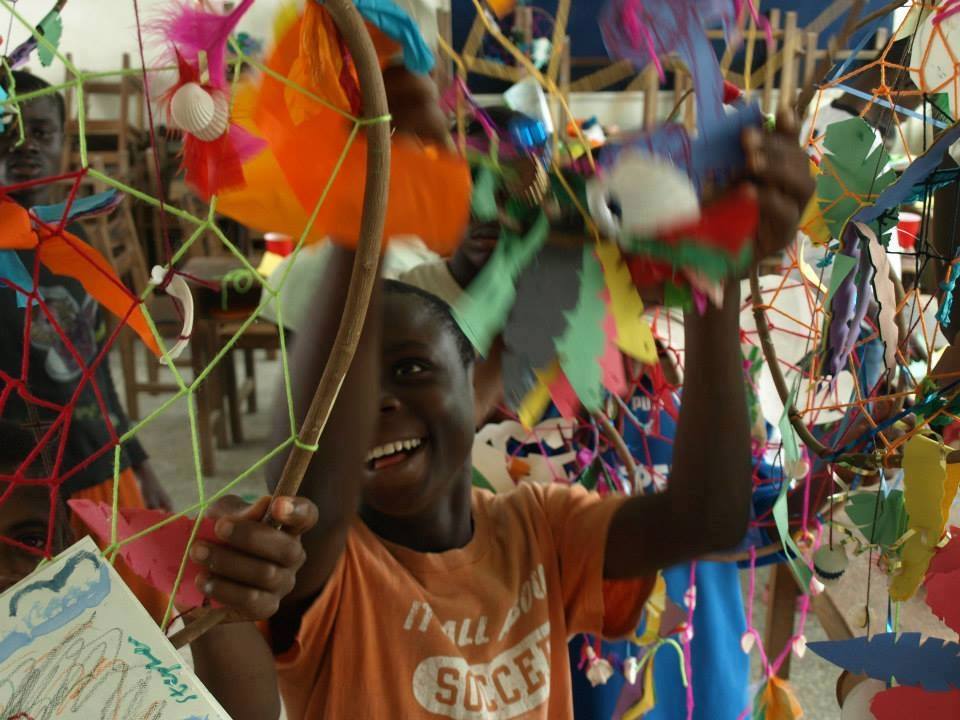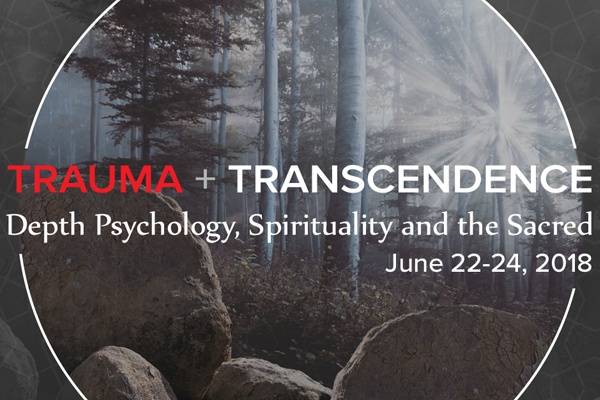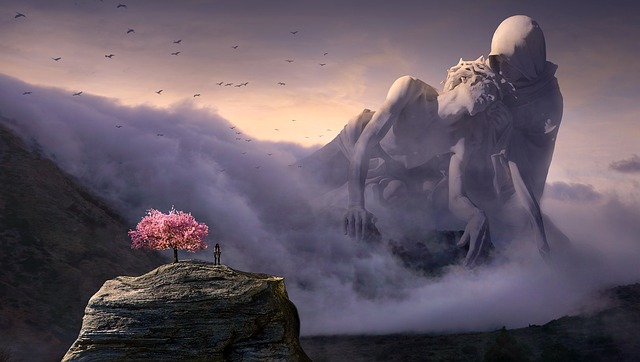A blog post by Melissa Ruisz Nazario, based on an interview with Stacey Shelby, RCC, Ph.D., conducted by Bonnie Bright, Ph.D.
Listen to the full audio interview with Stacey Shelby here. (approx. 30 minutes)
At first, Stacey Shelby, RCC, Ph.D., didn't want to explore the Wild Woman Archetype for her research while in the M.A./Ph.D. Program in Depth Psychology with Specialization in Jungian and Archetypal Studies at Pacifica Graduate Institute. Part of it was due to the type of research she would conduct and the effect it would have on her life. When authoring the book Tracking the Wild Woman Archetype: A Guide to Becoming a Whole, In-divisible Woman published earlier this year, she used a research methodology called alchemical hermeneutics, as described by Dr. Robert Romanyshyn, Pacifica Graduate Institute Professor Emeritus, in his book, The Wounded Researcher: Research with Soul in Mind.
In the introduction to Tracking the Wild Woman Archetype, Stacey defines alchemical hermeneutics as “an unconventional methodology not readily found in traditional academic institutions, and it acknowledges that researchers are often called to their work through personal wounding and complexes. This research methodology is an alchemical process that affects the researcher.”
Read More
Posted in:
The Psyche,
Therapist,
Psychotherapy,
archetypes,
nature,
clinical psychology,
Psychology,
depth psychology,
symbol,
dreams,
individuation,
Pacifica Students,
Pacifica Graduate Institute,
alchemist,
jungian,
relationship,
relationships
A blog post by Melissa Ruisz Nazario, based on an interview with Mai Breech, conducted by Bonnie Bright, Ph.D.
Listen to the full audio interview with Mai Breech here. (approx. 27 minutes)
Mai Breech, a Psy.D. doctoral student in Clinical Psychology at Pacifica Graduate Institute, has a long history of working with orphans and foster children. In 2007, she founded the Children’s Art Village, a grassroots non-profit organization providing art and music to children in Ghana, India, and Nepal so that they can express their creative selves through a means that doesn’t require language, but rather utilizes their creativity. Over the years, the Children’s Art Village has served over 3,000 children annually, and continues to do so. Typically, the programs are summer programs, offering art and music camps for these children in very different orphanages that she partners with.
Read More
Posted in:
The Psyche,
Therapist,
Trauma,
Psychotherapy,
clinical psychology,
Psychology,
graduate school,
creativity,
depth psychology,
dreams,
Pacifica Students,
Pacifica Graduate Institute,
relationship,
relationships
A blog post by Melissa Ruisz Nazario, based on interviews conducted by Bonnie Bright, Ph.D.
Ready to immerse yourself in some of the perspectives of trauma and transcendence being presented at Pacifica’s Trauma + Transcendence Conference June 22-24, 2018? We’ve rounded up our Pacifica Post blog posts and audio recordings of scholars and analysts presenting at the Conference who also recently spoke with Bonnie Bright, Ph.D., about their research.
Although registrations for attending the Trauma + Transcendence Conference in person have sold out, you can still gain access to the video livestream of the Conference’s Friday and Saturday events. Enjoy the Conference from the comfort of your home desktop computer or device by watching the livestream presentations in real time. You also have the option to earn continuing education credits by watching the livestream; please add the additional “Continuing Education Credit Fee” when you register. Details: https://retreat.pacifica.edu/trauma-transcendence/
Read More
Posted in:
Trauma,
Pacifica Events,
transformative,
C.G. Jung,
clinical psychology,
Psychology,
dreams,
psyche,
Spiritual
A blog post by Melissa Ruisz Nazario, based on an Interview with Ann Belford Ulanov, Ph.D., L.H.D., by Bonnie Bright, Ph.D.
Listen to the full audio interview with Ann Ulanov here. (approx. 31 minutes)
In the book The Unshuttered Heart: Opening Aliveness/Deadness in the Self, Jungian analyst Ann Belford Ulanov, Ph.D., L.H.D., says, “we can find our depth by being found in the depths.” But what does it mean, "to be found in depths"? For those of us who constantly seek to better understand ourselves and the world around us, or, as Joseph Campbell said, are "seeking an experience of being alive," what are some ways that we might find ourselves in these depths, to gain those profound insights that help us experience being alive? Ann, who is a prolific author and presenter at Pacifica’s upcoming sold-out Trauma and Transcendence conference in June 2018, says that one way we can find our depth in the depths is through our dreams. “You can’t make up the dream,” she says. “The dream makes up you. And some dreams you really get right away, and they tell you something you never knew before, and it’s as if you’re being addressed.”
Read More
Posted in:
Trauma,
Pacifica Events,
transformative,
C.G. Jung,
clinical psychology,
Psychology,
dreams,
psyche,
Spiritual
Integration: Chinese Medicine, Somatic Studies, and Depth Psychology. An Interview with Brian Falk
A Guest Blog Post by Bonnie Bright, Ph.D.
Chinese medicine has a long history based in a philosophical tradition, with its roots in Daoism, and later, Confucianism. Above all, it's essentially a system that's rooted in nature, explains Brian Falk, who has a clinical practice in Chinese medicine, and is currently completing his Ph.D. in Depth Psychology with Specialization in Somatic Studies at Pacifica.
The Chinese spent thousands of years developing a very comprehensive way of looking at humans in relationship to the cosmos, therefore, Chinese medicine can also be viewed as a type of cosmology, Falk notes. The way in which the Chinese conceptualize disease and health has a very different philosophical frame than that of Westerners. Using primary treatment tools like acupuncture, herbal medicine, massage, and cupping, Chinese medicine differentiates itself from allopathic medicine in the sense that it focuses on maintaining health and preventing illness.
Read More
Posted in:
The Psyche,
Connecting Cultures,
depth psychology,
images,
dreams,
somatic,
the body
Dreams, Calling, Suffering, and Individuation: Finding Light in the Darkness An Interview with Jungian Analyst and New Pacifica Core Faculty Member, Fanny Brewster. A Guest Post by Bonnie Bright, Ph.D.
Fanny Brewster first came to Pacifica as a student because she was interested in studying dreams. Once armed with her doctorate and a strong foundation in depth psychology and dreamwork, she identified a desire to go on and become a Jungian analyst, and synchronistically, now finds herself returning to Pacifica to teach as core faculty in the Clinical Psychology program there.
Read More
Posted in:
depth psychology,
dreams,
individuation
Concurrent session with Dr. Steven Aizenstat and Dr. Douglas Thomas, Response at the Radical Edge: Depth Psychology for the 21st Century
Summary article by Bonnie Bright, Ph.D.
When we move out of identification with images that arise at critical moments in our lives (whether from dreams or other modalities), and into relationship with the image, we get information from the images. In other words, if we can grasp that the image we encounter is “not me,” we can benefit from its underlying wisdom.
When you work with dreams from an animated point of view, notes Stephen Aizenstat, who pioneered the process of DreamTending[1], it brings the dream to life. When one comes into a relationship with the image, it allows the image its own innate intelligence, and it can speak to us what it knows.
Read More
Posted in:
dreams
The Art of Transformation: Images, Dreams, and Alchemy—An Interview with Jungian Analyst, Stanton Marlan
A Guest Blog Post by Bonnie Bright, Ph.D.
For Stanton Marlan, a Jungian analyst and author of the iconic tome, The Black Sun: The Alchemy and Art of Darkness, his interest in alchemy may be traced in some part to his childhood stone collection. As a child, Marlan used to use his stones to “write” in wonderful colors, and delighted in the way each had a certain capacity to express themselves in a unique way without crumbling in the process.
The stones, which he kept in front of his grandmother’s house where he lived, became a very early “image” for Marlan, carrying a great deal of meaning. When his grandmother determined the stones were cluttering the front yard and threw them away, it resulted in a sense of profound loss for the boy whose colorful stones were so rich and valuable to him. In some deep way, Marlan reflects, the search for the philosopher’s stone, or the search for meaning in stones, was an early imprint on his mind as a young child.
Read More
Posted in:
C.G. Jung,
alchemy,
soul,
images,
dreams,
individuation
Trauma and the Soul: Psychoanalytic Approaches to the Inner World An Interview with Jungian Analyst Donald Kalsched
A Guest Blog Post by Bonnie Bright, Ph.D.
Trauma is an injury to the capacity to feel, says Jungian analyst Donald Kalsched, who has specialized in the field of trauma for decades. He describes trauma as something that occurs when we are given more to experience than we can consciously bear, especially if we lack resources to help metabolize the feelings that emerge. For example, a child in an emotionally illiterate family who has no place to turn for support may be traumatized by certain events.
Read More
Posted in:
Trauma,
Pacifica Events,
clinical psychology,
soul,
dreams
A guest post by Juliet Rohde-Brown, Ph.D.
Pema Chodron has written: “Embarking on the spiritual journey is like getting into a very small boat and setting out on the ocean to search for unknown lands.” This quote beckons to how mindfulness and depth psychology serve complimentary journeys, in that both invite us into active agency with our inner landscape and a deeper intimacy in relational engagement.
Read More
Posted in:
Pacifica Events,
depth psychology,
dreams













